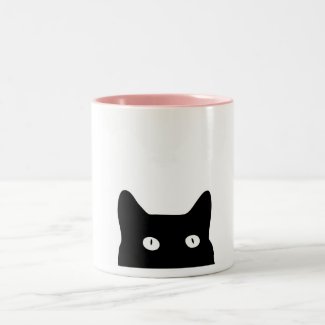Cat’s are great pets. If you are a cat guardian, you may wonder if you should allow your cat outdoors, or if it should be indoor only.
This article will ask you a few questions to consider as you make your decision.
Do You Want Your Cat To Have Maximum Life Expectancy?
Stats vary depending on which source you refer to. Regardless of which facts you refer to, the statistics favor indoor cats as having far longer life expectancies than outdoor cats.
There are nearly endless types of hazards that outdoor cats are exposed to that indoor cats are safe from.
Do You Want To Expose Your Cat To Diseases Or Other Health Conditions?
There are seemingly endless harmful and deadly diseases and health conditions outdoor cats are exposed to which indoor cats are far less likely, or completely exempt from encountering.
There are multitudes of health risks that outdoor cats face. Here are a few:
-Rabies: Cats should have current rabies shots as prescribed by your vet for prevention. Outdoor cats could be exposed to other rabid animals.
-FIV: Feline Immunodeficiency Virus (FIV) transmission is often through saliva or blood of the host to other cats.
-FeVL: Feline Leukemia (FeLV) can be contracted from blood, saliva, feces or urine of infected cats.
-Heartworms: Cat’s have at far higher risk of contracting heartworms as indoor cats.
-Tapeworms:
-Lime Disease:
To make matters worse, if you have multiple cats, many diseases and health conditions are also capable of spreading to the other animals under your watch.
Do You Want Dangerous People Handling Your Cat?
Animal abuse is real. Evil is real. The painfuly sad reality is that many sick, disturbed and evil people harm animals every day.
Even though cats are sweet animals, some people find them to be a nuisance. Other’s enjoy harming and torturing animals. Either way, they may inflict harm or even kill cats if the opportunity presents it’s self. Whether it’s trapping your cat in a cage then drowning it, shooting it, or torturing it the cat could be subject to extreme pain, suffering and even death.
Indoor cats are far less likely to be exposed to dangerous outsiders that may inflict harm to them.
Do You Want Your Cat To Encounter Deadly Predators?
Coyotes, Wolfs, Foxes, Raptors, and Bob Cats are a few of the dangerous predators that may cause harm to, or possibly even eat your cat. Many of these animals are nocturnal, which makes the danger for the kitty at night even greater than the day time.
Cat’s disappear to become the meal for other predators every day. Your cat is at risk of being killed or eaten if it is allowed outdoors.
Do You Want Your Cat To Risk Street Traffic?
Have you ever slammed on the brakes or even accidentally hit an animal, cat or even a kitten when driving? It happens every day.
Humans are taught from a very young age to look both ways before crossing the street. Even then, there are people who know the risk that get hit every year. Now imagine what it’s like for pets who don’t know the hazards of traffic, or what it even is for that matter.
Sadly, there is no way to teach animals the risk of street traffic. Many cross safely, but sadly, many get hit eventually. Indoor cats are not burdened by this risk.
Parents wouldn’t send their infant children out to play unsupervised, and certainly wouldn’t let them out onto the streets. Cat’s, dogs and other animals are exposed to severe risk when the people who are supposed to be keeping them safe are allowing them outdoors.
Do You Want Your Cat To Avoid Traps And Other Hazzards?
Sadly, stray cats don’t have homes, so they have to live on people’s property. Similarly, outdoor cats that do have homes have established routes, often frequenting other homes and properties in the area.
Unfortunately, many home owners do not welcome homeless cats on their beloved property. Many will get rid of harmless cats and other animals at any cost. One common solution is to trap the cat. Some use live traps, while others do not, leaving the animal to likely suffer to death slowly. Even if your outdoor cat is fortunate enough to be caught in a live trap, it will likely be taken to a farm, park or other location far away to be released.
Trapping is alive and well by those who don’t like cats.
Beyond traps, there are other unintentional hazzards such as getting stuck in a fence or getting a foot tangled when outdoors in a remote area that’s hard to find. It may sound unlikely, but things like this happen every day.
If your cat lives indoors these common hazzards are one less thing to worry about.
Do You Want Your Cat To Bring Fleas To Your Home?
Are feline cat friends are full of love, but they are also loved by fleas as well. They can bring the fleas into the house if they are indoor out-door cats.
Clearly flea treatments or a flea collar can significantly reduce or possibly eliminate fleas. Just make sure the collar is easy for the cat to escape from if it gets caught on something if they are outdoors in remote areas.
Do You Want Your Cat To Imbalance The Eco System?
Did you know that cats are not indigenous (originally from) to all contintents of the world?
As an example, it’s a common belief that house cats first arrived to North America in colonial times.
There are a wide assortment of mammals, birds, reptiles, amphibians, fish, worms, insects and more that have been introduced to other continents than they originally existed in.
What that means is that the ecosystem is offset when a non-indigenous species exists where it is not from. Predators such as cats can offset the population of birds rodents and other populations that would have not been exposed to this threat naturally before cats arrived. Obviously ecosystems adjust and adapt to such changes, but sometimes it can cause strain when there is a non-indigenous species in the land.
Cats are wonderful and adorable creatures. That’s why they have been introduced to new areas. There clearly here to stay. The natural ecosystem is great too. Keeping your cat indoors is a great way to enjoy their company while minimizing the effects of the natural ecosystem as well. Indoor cats help preserve the natural indigenous order of wild life populations in areas such as the United States which has only had cats for a short historical period.
Conclusion
Clearly there are advantages to cats being allowed to go outdoors – namely to enjoy the freedom of the wild. Sadly, however, that freedom comes with an agressive mortality rate for your sweet pet kitty. Indoor cats often live several times as long as cats that are allowed to go outdoors due to the previously addressed risks, along with many others.
Please consider keeping your cat indoors for it’s health, safety, and well being. There are also ways to build outdoor kennel structures, or cat strollers that your cat can enjoy as well. Always make sure you research these options carefully to ensure safety from extreme heat, and cold. Shaded areas for protection from the sun are also critical.
Many cats adjust and enjoy living inside if you have a desk or ledge in front of the window for them to look out as well. Finally, consider putting a bird feeder outside the window for the cat’s enjoyment and an easy meal to the visiting birds as well.
Love your cat, and consider keeping it indoors for it’s protection and safety.
Kindest regards to you, your family and cats,
-Randy / Animal Weekly

